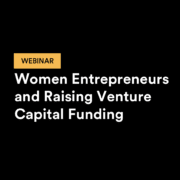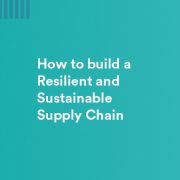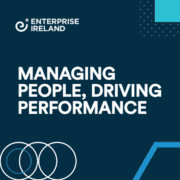Identify new market opportunities and develop your market entry plan
 Amidst the evolving trading relationship with the UK, agile Irish businesses have maintained a positive outlook on the market and taken proactive measures to mitigate the impact of Brexit on their operations.
Amidst the evolving trading relationship with the UK, agile Irish businesses have maintained a positive outlook on the market and taken proactive measures to mitigate the impact of Brexit on their operations.
Contrary to initial concerns, businesses have demonstrated resilience during this transition. Exports to the UK from companies supported by Enterprise Ireland have remained robust, experiencing a 13% increase last year. These exports now account for 29% of all exports.
While this is positive, there is no doubt that the impact of Brexit has varied across sectors and it is evident that certain companies require support to explore diversification opportunities in new markets. In response, the Post-Brexit Market Growth and Diversification Grant was launched earlier this year, to help businesses research and plan for expansion into markets beyond the UK.
The grant, developed under the Brexit Adjustment Reserve fund, can cover up to 80% of the expenses incurred in hiring a consultant, with a maximum grant limit of €36,000.
Through the guidance and expertise of an expert industry consultant, this grant provides recipients with the opportunity to develop their market entry strategies including:
- Market research / market intelligence gathering
- Identification of market segments and end customers
- Examining the best routes to market
- Value proposition and message development for each of the identified market segments
- Developing a market entry strategy
- Development of market launch strategy including tactical marketing activities
Companies receiving the grant can select an experienced consultant based in Ireland or seek assistance from Enterprise Ireland’s overseas offices to find a suitable consultant in their desired market.
To qualify, companies must have experienced a sales reduction of 5% or more in the UK market during 2020, 2021, or 2022 compared to their 2019 sales.
Learn more about the Post Brexit Market Growth and Diversification grant, and apply before 31st July.
Women Entrepreneurs and Raising Venture Capital Funding – Webinar
Hosted by Enterprise Ireland and the Irish Venture Capital Association, this is the second “Women Entrepreneurs and Raising Venture Capital (VC) Funding” focuses on encouraging women-led companies to seek venture capital finance.
The purpose of this webinar is to support companies in all sectors and at all stages of growth that are seeking venture capital finance. There is a specific focus on encouraging and enabling women entrepreneurs to successfully raise VC finance.
It includes panel discussions with women funders and founders, which identifies and provides examples of successful fundraising strategies.
Recognising the under-representation of women in this space, the webinar is targeted at women-founders and co-founders in all sectors and at all stages of growth.
It provides a roadmap for women founders on their investment journey who wish to develop their investment skills and network with other women funders and founders.
Building resilient and sustainable supply chains to future-proof Irish business
Having weathered the storms of Brexit, global trade divisions, the Covid-19 pandemic and energy inflation, the next challenge for Irish exporters is to future-proof their business by developing resilient and sustainable supply chains.
This will require rethinking supply chain strategy and adhering to new EU legislation on corporate sustainability reporting. The challenges and potential solutions involved were analysed at the ‘Building a Resilient and Sustainable Supply Chain’ webinar, the first webinar in the Client Solutions event series.
Pain-points and solutions
“The Covid-19 pandemic and other events have seen companies fundamentally re-examine their supply chains and certain themes have emerged including localisation, diversification, digitisation, sustainability and Just-in-Time versus Just-in-Case,” said Mike Hogan, Senior Executive Global Sourcing, Enterprise Ireland
Mike’s presentation focused on supply chain pain-points and solutions identified by Enterprise Ireland client companies.
Localisation and ‘Alt Asia’
“As companies begin to ‘nearshore’ more they’re beginning to look at what our local is and local for Ireland in many cases is two to three hours flying time or accessible points by sea from Ireland,” said Hogan.
Local also means looking to suppliers in the Balkans and the North African ‘Mediterranean Lake’ countries such as Morocco and Egypt. The new post-Brexit ferry and cargo routes into France, Holland and Spain “have opened up opportunities for a lot of our clients to examine new suppliers,” added Hogan.
And as labour costs rise in China, some businesses are reducing their dependence on China and looking to what are termed the ‘Alt Asia’ countries such as Vietnam (production) and the Philippines (back-end services) for suppliers. “While they may not be able to supply all the aspects of China in terms of a one-stop-shop, suppliers in these countries can be combined to bring together the necessary inputs that people require for their businesses,” said Hogan.
“The key takeaway from our clients is that they are looking at combining longer and shorter supply chains and also that supply chain management is a continuous activity. It’s not something you do because you lose a supplier – it’s something that should be going on in the background on a continuous basis.”
“The key takeaway from our clients is that they are looking at combining longer and shorter supply chains and also that supply chain management is a continuous activity. It’s not something you do because you lose a supplier – it’s something that should be going on in the background on a continuous basis.”
Diversification and ‘Just-in-time’ versus ‘Just-in-Case’
Some Ireland client companies are beginning to reduce their over-reliance on specific suppliers. “Here we’re seeing examples of companies engaging with additional suppliers at a lower level to keep them on standby,” said Hogan.
He also predicts a shift from the ‘Just-in-Time’ supply strategy that has held sway for decades towards a more ‘Just-in-Case’ approach. Companies are holding additional inventories to reduce risk, but this also creates challenges around raising capital and inventory management, he cautioned.
Resources for sourcing new suppliers
The Enterprise Ireland Market Research Centre should be the first stop for companies looking to source new suppliers, said Hogan. He added that trade shows, the commercial sections of foreign embassies based in Dublin and London, Chamber of Commerce networks in Eastern Europe and North Africa, and specialist British trade bodies are also valuable sources of leads.
And he emphasised that given the multinational profile of the Irish workforce, companies should look at tapping into their own reservoir of talent to liaise with suppliers in their employees’ native countries.
Sustainable supply chains
The impact on supply chains from climate change was addressed by Ingrid de Doncker, Co-founder and Head of Innovation, Future Planet.
“Climate change is the biggest challenge for this generation of business leaders to solve. The future of our businesses and the planet is in our hands. It all comes down to responsible production and consumption and how we can source and buy products and services better.”
“By embracing sustainability in supply chains, we not only secure a better future for our planet and society, but also create more resilient, innovative, and profitable businesses.”
De Doncker also outlined how new EU legislation on corporate sustainability reporting will impact how businesses operate.
“It’s going to be the most challenging business transformation we will ever see,” she said, adding that “an unstoppable legal train has left the EU station.”
The Corporate Sustainability Reporting Directive (CRSD), which came into force in January 2023, will require EU-based companies to strengthen and standardise their sustainability reporting from 2025 onwards.
The directive aims to eliminate greenwashing, and companies that fall under the CRSD will need to prioritise their sustainability reporting strategy around five key areas, said de Doncker. These are:
- Double materiality This involves looking inwards to assess sustainability risks to the business and its impact on environment & society.
- Looking both ahead and back Companies must provide retrospective and forward-looking sustainability analysis in their financial and management statements.
- Stricter rules around climate-related disclosures in particular disclosure of Scope 3 emissions.
- Third-party assurance Sustainability information must pass through an external audit process before publication.
- Digital data and tagging Companies must prepare financial and management statements in XHTML or electronic format in accordance with the EU taxonomy.
The CRSD will be introduced on a phased basis, beginning with companies and public interest entities already subject to the EU’s Non-financial Reporting Directive (NFRD). By 2027, all companies with 10 or more employees will need to be CRSD-compliant.
For now, said de Doncker, companies should consider two fundamental questions when planning their sustainable supply chain strategy:
- How will you adapt your business model and your supply chain to reduce the impact of climate change?
2. What measures will you take to mitigate the impact of your business on the environment and society?
To adapt or mitigate your business and your supply chain to climate change, your first port of call is assessing and improving these related material challenges:
- Sustainable Procurement
- Green Logistics
- Human Rights and Stakeholder collaboration
- GHG Scope 3 Management
- Circular Economy and End of Life Waste
- Sustainable Product & Packaging Design
Building a resilient and sustainable supply chain is not always easy, but always worthwhile. To ensure transparency, collaboration across the supply chain and compliance to reporting standards, ESG enabled software can guide the journey to sustainable growth to Live Better in your business, Buy Better from your supply chains and Design Better for your customers.
Building a Resilient and Sustainable Supply Chain
Building a resilient and sustainable supply chain was the first in a series of Client Solutions events and webinars being hosted by Enterprise Ireland. The webinars offer practical solutions to the acute challenges facing businesses.
To register for upcoming events and to watch the recordings, visit Client Solutions Events
Under the microscope: how Hooke Bio found success
The brilliant 17th-century scientist Robert Hooke proved an unlikely source of inspiration for an ambitious MedTech company in Shannon.
“Robert Hooke was the incredible mind behind Hooke’s Law and early microscopy advances. Despite facing many challenges in his life, he was determined and truly ground-breaking in his fields. We see some of ourselves in him,” beamed COO of Hooke Bio, Dr Finola Cliffe.
Finola has 15 years’ experience in cell culture. In 2014, she joined Hooke Bio, where she now leads a team of scientists and engineers developing technology for 3D microtissues. This technology has the potential to replace the need for animal testing and provide more accurate testing models.
“It’s fantastic being part of a small company with good intentions. But we often wonder where the next segment of funding is coming from,” Finola says.
Forging a new path
The team was initially based at the University of Limerick and it was here they received their first investment under the Enterprise Ireland Commercialisation Fund. By August 2016, this additional support allowed Finola to successfully develop a working prototype. Her team now faced a new challenge.
“It took us months to get hold of usable data. Then it dawned on me, ‘this is going somewhere but we don’t have enough runway.’” she says.
While the first fund allowed the team to build a working prototype, a second would allow them to take things further again. In 2017, the team successfully secured a second Commercialisation Fund to build a more robust prototype on a larger scale. Even with new financial support, Finola was still concerned.
“We knew technology. But we were green behind the ears in how to market a product. This was a massive challenge for us to overcome. We needed to understand how to position ourselves – the funding helped with this and was the first stepping stone.”
Leaping into the unknown
Through the Enterprise Ireland mentorship programme, Terry Sullivan, former MD of Clonmel Healthcare, was enlisted to help with the next step – selling the idea. He, along with Prof. Mark Davies, the founder of Hooke Bio, devised a plan around costs and milestones with the team.
The Transfer Technology Offices (TTO) became more involved. They’re responsible for technology transfer and aspects of research commercialisation at universities. Working closely with Enterprise Ireland, TTO contacted experts who could share further insights into larger pharmaceutical companies like Pfizer, Novartis and AstraZeneca.
“It was a steep learning curve but we learned a lot during this time. We were beginning to understand how to best pitch ideas to research and development units. The Market Research Centre was like gold dust for us,” says Finola.
As part of Enterprise Ireland, the Market Research Centre offered access to free reports that would typically cost thousands of Euros. This provided important knowledge on the competition and proved crucial in seeking investment.
Reaching the masses
The team eventually finished a business plan and began networking with potential investors in Ireland. The media was one way to be heard.
“We got our name out there, did interviews with journalists and told our story. It was something new to us, but our confidence grew,” she says.
Finola noticed that investors were becoming more familiar with the company. Having won the Big Idea Showcase in 2017, even more investors came forward.
“We were getting a lot of traction and that was worth an awful lot to us. We have grown so much since the initial funding.”
Finding a new home
It wasn’t long until the team secured its initial investor funding and spun out of the University of Limerick. However, more funding would be needed to secure new premises and set up labs.
In early 2019, after the team secured disruptive technology and innovation funding, they moved to Shannon. Their new premises contain offices, engineering labs, and workshops, making it an entirely self-sufficient business.
“We don’t need to outsource anything, which is quite unusual for a company of our size,” she says. “We can make all our prototypes in-house – we can mill stainless steel, acrylic, mostly any material we want. A lot of components are needed when testing.”
Believing in yourself
Enterprise Ireland’s Commercialisation Fund has opened up a world of opportunities for Finola and her team, helping them on a path to success.
The company has just completed its second round of investment and released two new patents. In Jan 2019, Hooke Bio won €1.9m in the first round of funding through the Disruptive Technologies Innovation Fund, in collaboration with The Centre for Advanced Photonics and Process Analysis and NUI, Galway.
For anyone thinking of embarking on a new journey with Enterprise Ireland, Finola has some advice: “Communication is everything. If you’re unsure of next steps, just go for it and pick up the phone – if you don’t try, you’ll never know”.
Discover how to take your idea from lab to market with Enterprise Ireland’s Commercialisation Fund.
Implementing successful performance management practices in the new workplace
The Covid-19 pandemic has had a significant effect on the way we work in Ireland. We were suddenly thrown into an emergency situation, during which many of us had to work remotely.
Thanks to the success of the vaccination rollout, we are now entering into the recovery phase of the pandemic. However, it’s clear that what’s normal in the world of work has shifted.
Changed working practices
Several surveys have indicated a strong preference by employees for continuing remote or hybrid working into the future, and many companies are now looking at how to make these new working practices sustainable into the future – both to attract and retain talent and to ensure that strategic goals are achieved. But with this change comes a number of challenges.
“One such concern is how to drive employee performance to continue to deliver business results as we move into the new world of work,” explains Lola Ade-Onojobi, People & Management Specialist at Enterprise Ireland.
“Pre-pandemic, performance management practices had already evolved significantly, and the pandemic only further accelerated this evolution. A sudden move to remote working, along with significant personal upheaval such as having childcare responsibilities during the day or looking after vulnerable family members, forced many employers to adjust their management and leadership practices to better support their employees during this time of uncertainty.”
“Now that we are moving into a period of recovery, it is essential for companies to focus their efforts on building sustainable practices to support employee engagement, performance and, ultimately, business growth.”
Implementing successful performance management
To help companies implement successful performance management in the new workplace, Enterprise Ireland has launched a new guide in partnership with performance management experts ‘Our Tandem’.
Entitled ‘Managing People, Driving Performance: A Good Practice Guide’, this is the latest in a series of guides for employers on navigating the post-Covid workplace and is free for all employers to download.
“While recognising that performance management requires a tailored approach by every company, this guide provides valuable information, based on best practice and latest business theory, that helps employers rethink their approach to performance management,” says Lola.
“The guide examines the evolution of performance management best practice over the years and how it has been affected by the pandemic. It also highlights the foundations of good performance management such as goal setting, check-in conversations, fluid feedback, performance reviews, and reward and recognition practices.”
“Crucially, the guide provides relevant tips on embedding a strong performance culture within a company, on how managers can become coaching leaders, and on building communication to ensure that the changes are implemented successfully.”
This is a practical guide, with templates that are useful for every company, regardless of sector, size or maturity, to identify the changes needed within their own performance management process and implement them successfully and sustainably.
Supports to complement our performance management guide
For Enterprise Ireland-supported companies, the guide complements a range of financial and non-financial supports currently available.
“Non-financial support includes access to our e-learning platform (eiLearn.ie), which contains many articles, podcasts, videos and downloadable content on people management,” Lola says.
“We also offer a range of financial supports such as business growth advisor and strategic consultancy grants, which contribute to the cost of engaging external consultants to help companies address business challenges. More details on these supports are available from your Enterprise Ireland Development Advisor.”
It’s clear that every company must carefully examine the way in which they operate and ensure that it’s suitable for the new world of work – and to do this as soon as possible in order to maintain optimal performance and retain and attract talent.
A key part of this, according to Lola, is enacting the right performance management framework, both for the company’s sake and to support employees during this time of change.
“The benefits of a performance management framework are clear – for employee engagement, retention, team spirit and ultimately positive bottom-line results for the business.”







